Radicalize This Day
risk-taking as survival
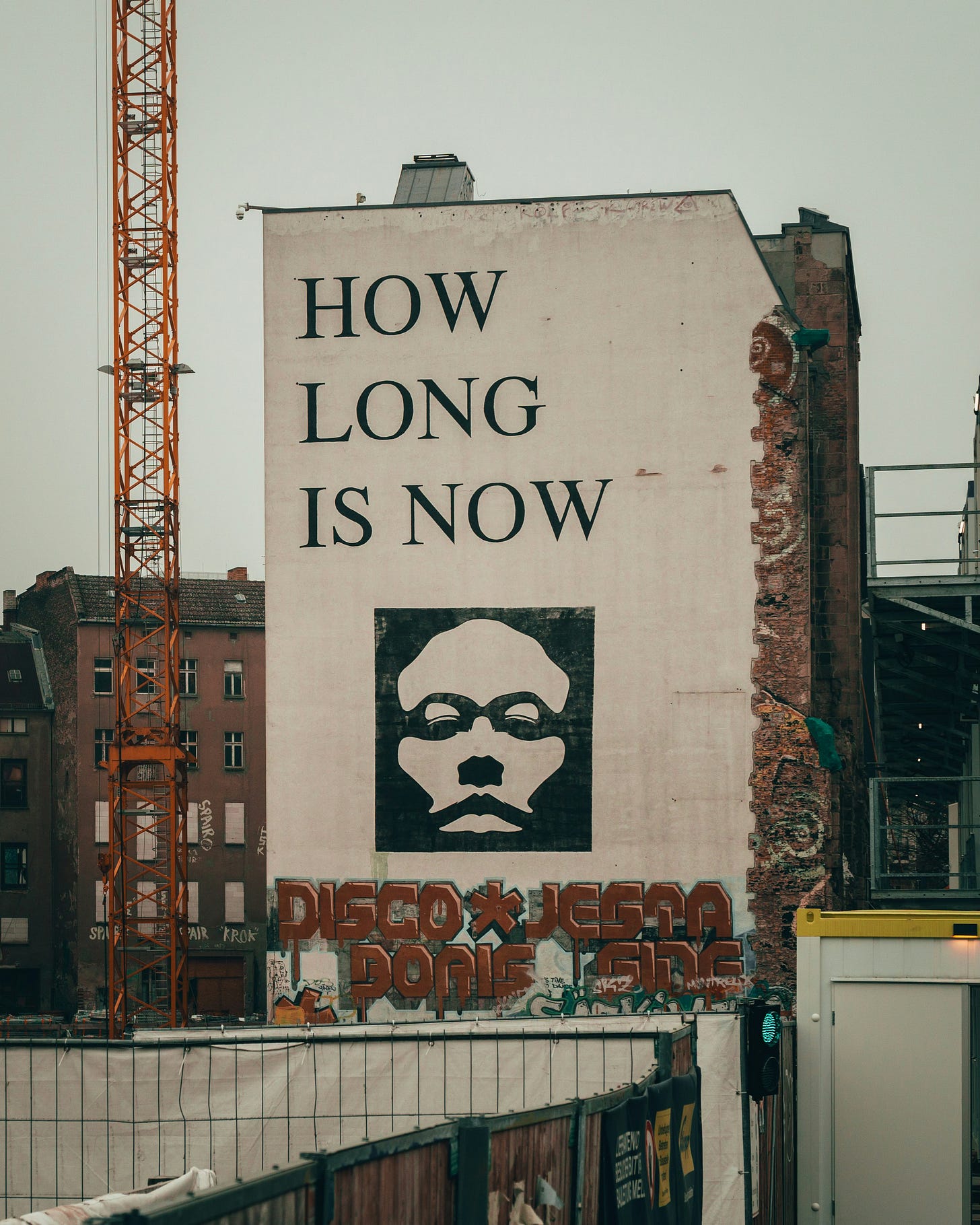
I call myself a morning person. It’s not untrue—there’s a version of me who loves waking long before the rest of the world, loves the sense of borrowed time, the feeling of crispness and potential and possibility. This version might even be my truest self, the essential me.
In reality less than a third of my days begin with a natural desire to get out of bed. In lieu of hope and possibility, I awake to a vague but heavy weight that asks what is the world expecting of me today? Shame already looms. Whatever is expected of me is probably too much. If I haven’t managed to fail the world upon waking, surely I will over the course of the day. This kind of self-defeat doesn’t exactly motivate a girl to get up.
There’s a sense on those days that I know how to feel better. To get up and do my extensive witchy-prayer routine. Clean the house from top to bottom. Go for a walk, greet the cows. Do anything creative. These tools, these reminders, work. If I get up. They do not solve for the actual rising from the bed.
Like everything else, the solutions become shoulds. More ways to I’ll let the world down. You know your work is to get healthy and you know how but you’re letting this moment pass you by so the whole day is shot and also the rest of your life. You’re highly capable and could lead a successful life in service of others but you’re so pathetic you can’t even pull off getting out of bed.
Welcome to the brain of depression. Of addiction. Of ADHD. It’s more dust-particle-to-Big-Bang than molehill to mountain. And sure, it’s all incredibly self-indulgent and absurd and over-analytical. It’s also very very real.
One of the tragicomedies of being me is that I forget I have ADHD because ADHD. I’m often deep in self-loathing before I remember others have named and validated the experiences I’m having. According to Edward M. Hallowell M.D. & John J. Ratey M.D. in ADHD 2.0: New Science and Essential Strategies for Thriving with Distraction - from Childhood Through Adulthood:
“ADHD can be an unremitting, lifelong ordeal, the reason a brilliant person never finds success, but rather limps through life in frustration, shame and failure, amid catcalls to try harder, get with the program, grow up, or in some other way reform.”
In recovery, the baseline is admitting—accepting—that life has become unmanageable. We’ve hit a threshold of overwhelm. Can’t do it alone. 6+ months in, I’m still regularly filled with gratitude for the idea that an unmanageable life isn’t some moral failing, a thing to judge myself extensively for. For some of us, naming that doing the dishes feels unsurmountable is simply square one.
About ten days ago, I lost the plot again. Completely. It’s amazing how quickly someone with so much community can fall into total isolation. I was back at unmanageable. Understood it was time to double down on my recovery. Ask for help. Scrap everything and reset my life.
From the outside this mostly looks like carrying around a clipboard with a neon pink checklist. It’s a very simple list. A daily life designed to help me feel like a success for small wins instead of a perpetual failure. One small house task. One thing from my to-do list. A small(ish) act to radicalize this day.
One of the characteristics many people with ADHD (and many addicts) share is the need to push boundaries. To shake things up. Take risks.
“We have a pronounced intolerance of boredom; boredom is our kryptonite. The second we experience boredom—which you might think of as a lack of stimulation—we reflexively, instantaneously, automatically and without conscious thought seek stimulation. We don’t care what it is, we just have to address the mental emergency—the brain pain—that boredom sets off.”*
Risk-taking is critical for my mental and emotional and spiritual health. It doesn’t have to be crazy but it can be. Pour rubbing alcohol on an overworked painting. Paint a frame neon pink. Make lots of things neon pink. Throw your iPhone at the wall (and when that feels great do it again and then stomp on it). Drive too fast. Bail on a trip you were looking forward to. Rearrange the furniture (oldie but goodie). Cold call someone you haven’t talked to in a long time. Eat a whole box of popsicles. You get the drift. Do play.
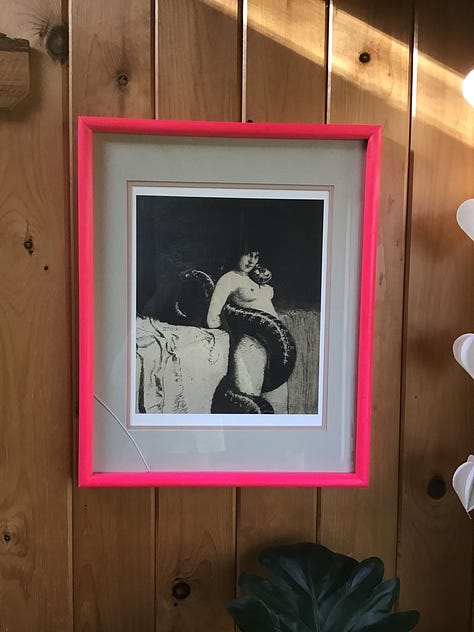
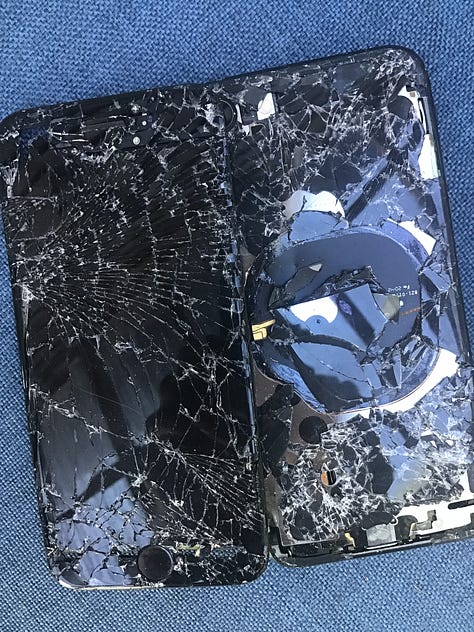
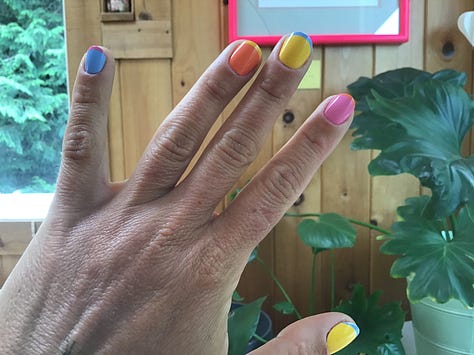
Could small radical acts become compulsive behaviors, become addictions? Is daily risk-taking a slippery slope? Sure. The threshold between life-giving and life-taking can be paper thin. But let’s be real—addiction is hardly radical. Established addictions are actually very very predictable loops.
Scheduling small risks is my boredom prevention, but risk is also how we get innovation and transformation. By calling an act radical I’m telling myself it has to be different from yesterday’s. A change, reform in the truest sense. Re-forming my life every single day.
The more I learn about both addiction and ADHD the less I can tell them apart. So many of the behaviors are the same that I’ve stopped trying to discern where one ends in me and the other begins. This brain is the one I got and living with it is a lot. What matters is that I have others to remind me I’m not alone.
“Ignorance regarding ADHD costs lives. Literally. It can lead to suicide, addictions of all kinds, felonious acts (the prisons are full of people with undiagnosed ADHD), dangerously violent behavior, and a shorter life. About two-thirds of people with ADHD have a life expectancy reduced by up to 21 years.
“Addictions of all kinds are 5-10 times higher in people who have ADHD than in the general population. We live with an itch at our core that can only be scratched in certain ways. Creative achievement is perhaps the most adaptive, worthwhile and sustainable, while addictions—of all kinds—are the most maladaptive and destructive.” *
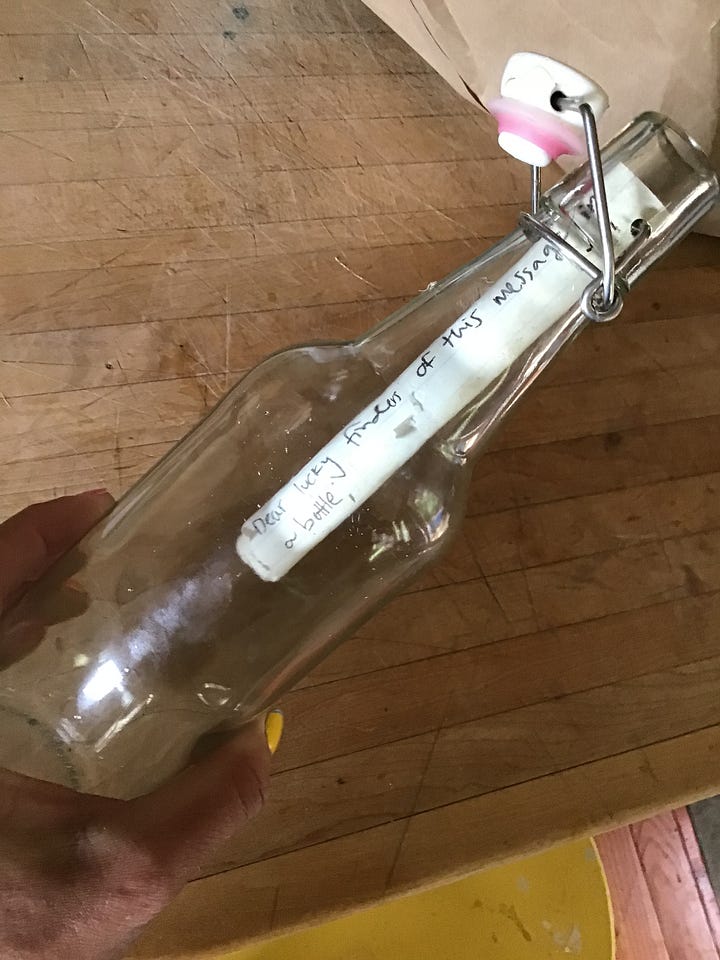
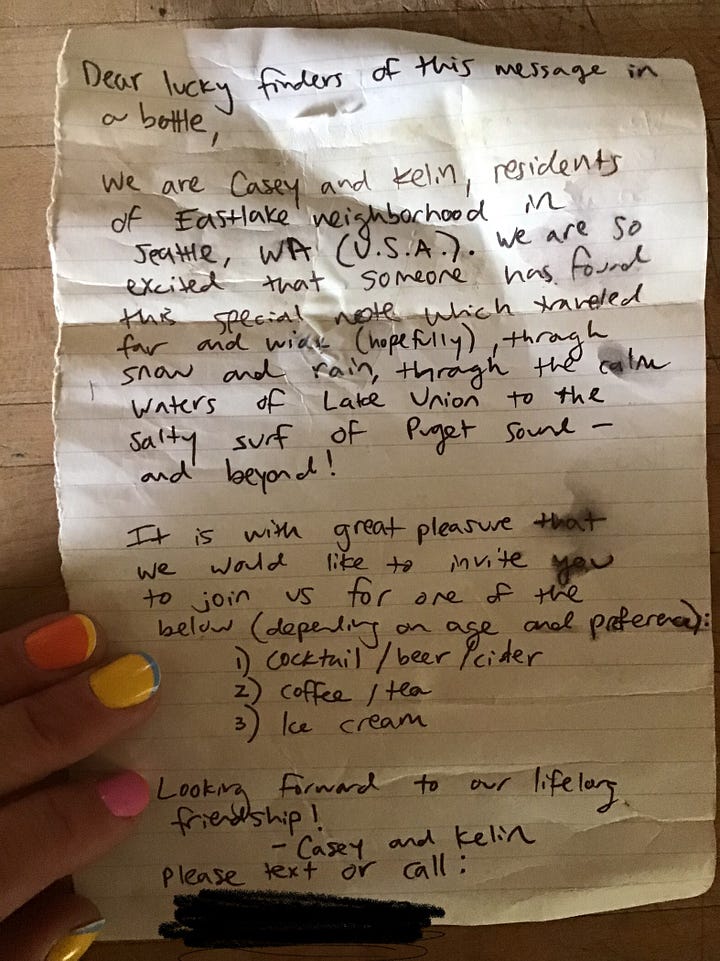
So here’s to more creative achievement and less destruction for all. And here’s an Optional Assignment:
You guessed it. One small act to radicalize this day. Only you know what that means for you. Make something brighter or bigger or louder or faster. Do something that’s not allowed. A thing that nudges the edges of possibility. Give yourself a dare. It doesn’t have to be crazy but it can be.
*All quotes are from ADHD 2.0: New Science and Essential Strategies for Thriving with Distraction - from Childhood Through Adulthood


Rearranging furniture along with you💚
Love the message came to you in a bottle! 😍
Also, have you read “Scattered” by G Mate? I found it incredibly helpful. Xx